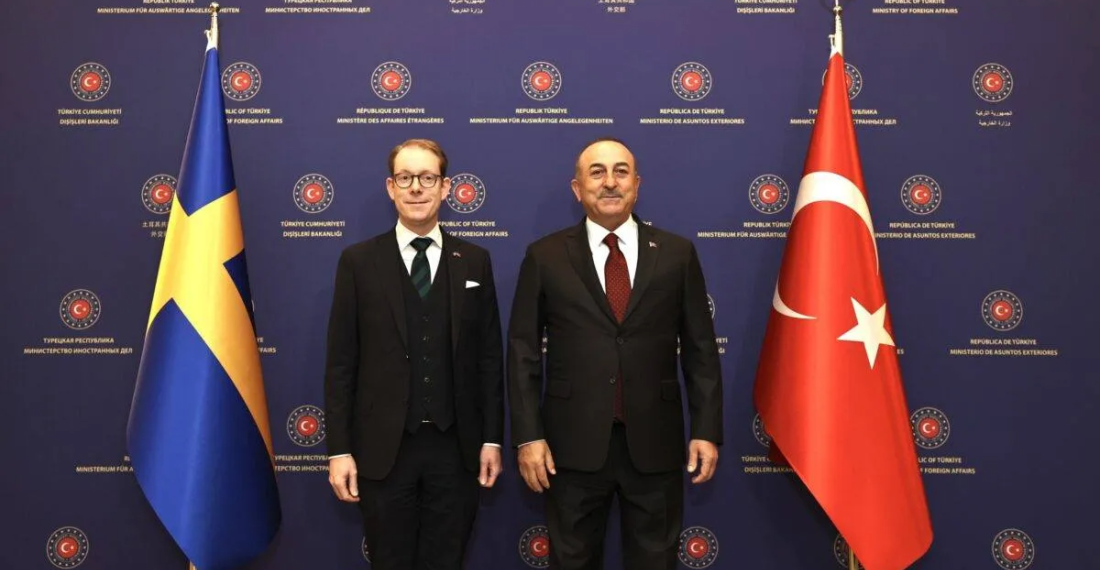Swedish negotiators are in the Turkish capital city of Ankara today, on Wednesday (14 June), for the first set of talks with Turkey on its NATO membership bid since President Erdogan's election victory on 28 May.
Update on 15 June: Following the meeting in Ankara, a statement issued by both sides announced that they discussed Sweden’s steps to fulfill its commitments on a trilateral memorandum signed earlier, and agreed to further meetings. "The progress on commitments is assessed at the meeting and the participants agreed upon taking subsequent concrete steps," the statement said.
Sweden applied for NATO membership alongside Finland on 18 May 2022, almost three months after Russia launched its full-scale invasion of Ukraine on 24 February. While Finland joined the military alliance on 4 April, Sweden's bid continues to be held up by objections from Turkey and Hungary.
Sweden's chief NATO negotiator Oscar Stenström and top civil servant in the Swedish foreign ministry, Jan Knutsson, are expected to meet Akif Cagatay Kilic, the new security advisor appointed by President Erdogan following his 28 May victory.
The two sides will discuss Sweden's membership of NATO, and the extent to which the country has fulfilled its promises in the so-called "trilateral memorandum" between Turkey, Sweden and Finland signed at NATO's summit in Madrid on 28 June last year. The full text of the memorandum can be read here.
Last Sunday (4 June), NATO Secretary-General Jens Stoltenberg urged Turkey to approve Sweden's membership ahead of the bloc's summit in Vilnius, Lithuania, on 11-12 July.
"Membership will make Sweden safer but also make NATO and Turkey stronger," Secretary-General Stoltenberg told journalists in Istanbul, adding that he looks forward "to finalising Sweden’s accession as soon as possible".
Meanwhile, after a meeting behind closed doors with NATO Secretary-General Jens Stoltenberg on Capitol Hill on Tuesday (13 June), the U.S. Senate Minority Leader Mitch McConnell tweeted: "I believe Sweden's leaders understand and respect Turkey's national security interests. And I know it is in NATO's interests to welcome this modern, high-tech economy into the Alliance."
"The Senate hopes and expects to see Sweden become a NATO ally by the Vilnius summit next month," he added.
Sweden makes legislative changes to address Turkey's concerns
Turkey has accused Sweden of being soft on groups that they perceive as terror organisations or consider existential threats, including Kurdish groups such as the PKK, and the Syrian Kurdish militia group, the YPG, and its political branch, the PYD.
In an attempt to address Turkey's concerns and to persuade Ankara to approve Sweden's bid to join NATO, at the start of May Sweden tightened anti-terrorism laws to include a prison term of up to four years for individuals convicted of participating in an extremist organisation in a way that is intended to promote, strengthen or support the group.
The bill, which entered into force on 1 June, also makes it illegal to finance, recruit for or publicly encourage a terrorist organisation, as well as travelling abroad with the intention of joining such a group.






